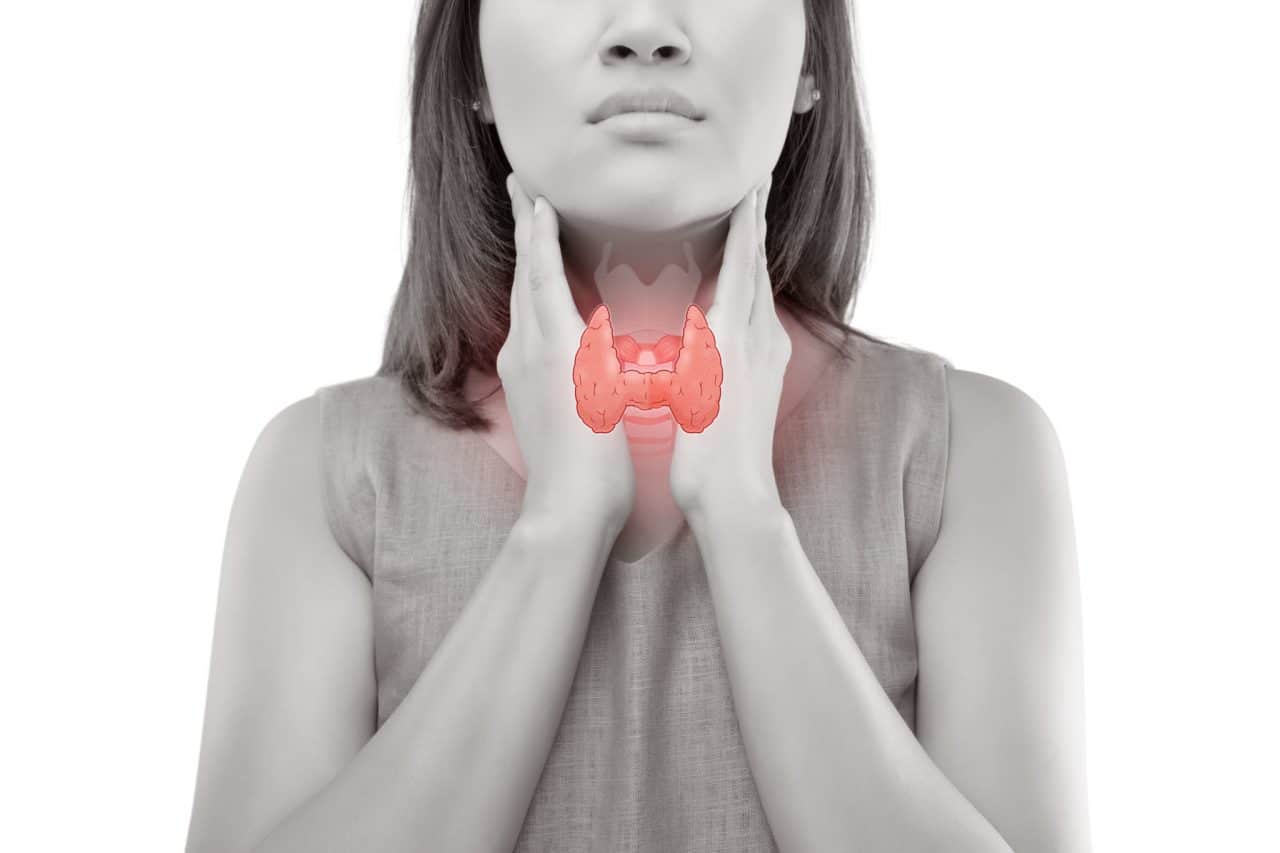The thyroid is a gland located in the low anterior neck that is shaped roughly like a capital H. It produces thyroid hormone, which helps to regulate the body’s metabolism. A simple blood test can determine whether the gland is producing the right amount of hormone. Excessive production of thyroid hormone (hyperthyroidism) can cause palpitations, tremors, weight loss, and heat intolerance. Conversely, an under-active thyroid gland (hypothyroidism) can result in fatigue, weight gain, and cold intolerance.
Thyroid Nodules
A thyroid nodule is a growth in the thyroid gland. Thyroid nodules are extremely common, and may be solitary or multiple (multinodular goiter). It is estimated that approximately 5-10% of the population has a palpable thyroid nodule, and between 30-85% have tiny thyroid nodules that are too small to palpate.
In most people with thyroid nodules, the gland produces a normal level of thyroid hormone. Approximately 5-10% of nodules are cancerous. Some patients have findings that increase the concern for Thyroid gland malignancy. A history of exposure to radiation therapy to the neck is a risk factor, as is a family history of thyroid cancer. Hoarseness, lymph node enlargement, and fixation of the nodule can also increase the degree of concern for malignancy. Fortunately, the vast majority of thyroid cancers are treatable and carry an excellent prognosis.
When Should You Seek Help?
Most thyroid nodules do not require surgery. The primary indications for thyroidectomy are suspicion of cancer, large size, substernal location (nodules that grow inferiorly into the chest), or significant symptoms caused by the size or location of the nodules (throat pressure, difficulty swallowing, respiratory distress, or cosmetic disfigurement from a visible goiter). Over-functioning nodules are sometimes treated by surgery, as well.
Tests and Treatment
The most important tests to evaluate a thyroid nodule are a TSH level (a blood test that evaluates the function of the gland), an ultrasound of the thyroid, and a fine needle aspiration (FNA) biopsy to evaluate the nodule for malignancy. Although FNA is highly accurate, it is not 100% accurate in making a diagnosis. FNA is usually performed by a pathologist, but for smaller nodules the biopsy may be done by a radiologist using ultrasound guidance. There are some types of thyroid nodules (follicular tumors) in which an FNA cannot distinguish benign from malignant nodules- these nodules are usually best managed by thyroidectomy.
Thyroidectomy
A thyroidectomy is an operation that removes part or all of the thyroid gland. The extent of the operation depends upon the nature and extent of the pathology.
Procedure Description
The patient is admitted on the morning of surgery, and the operation is done under general anesthesia. It generally takes about 1- 1 1/2 hours to perform, and is done through a horizontal incision (usually placed within a skin crease) in the low, anterior neck. Recovery is usually rapid- most patients are ambulatory the day of surgery, and most experience little or no pain after the first 24 hours. Most return to work with no restrictions within 1 week of surgery.
Parathyroid Conditions
Parathyroid glands are located behind the thyroid gland. These glands help control the calcium level in your blood. There are several types of diseases that can affect these glands.
Primary hyperparathyroidism is when one or more of these glands are overactive and the calcium level is too high. A surgery similar to the thyroidectomy is usually curative.
There are also secondary and tertiary hyperparathyroid diseases that are an effect of an underlying issue. Kidney disease and other medications are common causes of altered parathyroid function and calcium levels, some of which do not require a parathyroid surgery. Additional blood tests or scans may be needed to differentiate between these.
If you have been told that you have parathyroid issues, the doctors at Midwest ENT can help find the cause and best direct you towards appropriate treatment options.
Call Midwest ENT Centre at (636) 441-3100 for more information or to schedule an appointment.
